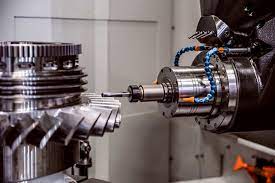
The Engine Behind Precision: Exploring the World of Precision Machining
Introduction
In the world of manufacturing and engineering, precision machining is a critical process that forms the backbone of countless industries. From aerospace to medical devices and from automotive components to electronics, precision machining plays a pivotal role in creating high-quality, intricate, and accurate parts and products. In this article, we’ll delve into the fascinating world of precision machining, uncovering the technology, techniques, and applications that make it an essential part of modern manufacturing.
1. What is Precision Machining?
Precision machining refers to a manufacturing process that uses cutting tools to remove material from a workpiece with incredibly tight tolerances and high accuracy. The goal is to create parts and components that meet precise specifications in terms of dimensions, surface finish, and geometric complexity.
2. Precision Machining Techniques
Precision machining encompasses a variety of techniques, each suited to different materials and applications:
Turning: In turning, a workpiece rotates while a cutting tool removes material to create cylindrical parts, such as shafts and bolts.
Milling: Milling uses rotating cutters to remove material from a stationary workpiece, producing complex shapes and contours.
Grinding: Grinding employs abrasive wheels to create fine surface finishes and tight tolerances on hard materials like metals and ceramics.
EDM (Electrical Discharge Machining): EDM uses electrical discharges to erode material from the workpiece, making it ideal for intricate, hard-to-machine parts.
Drilling: Drilling creates holes in workpieces, providing precise positioning and sizing.
Laser Cutting: Laser cutting employs focused laser beams to precisely cut and shape materials like metal, plastic, and wood.
3. Materials Precision Machining Works With
Precision machining can be applied to a wide range of materials, including metals (e.g., aluminum, steel, titanium), plastics, composites, ceramics, and even exotic materials used in aerospace and medical applications.
4. Importance in Various Industries
Precision machining is the cornerstone of industries where accuracy, reliability, and quality are paramount. Some key sectors that rely heavily on precision machining include:
Aerospace: The aerospace industry demands precision machining for aircraft components, engines, and avionics.
Medical Devices: Medical instruments, implants, and surgical tools require tight tolerances and biocompatibility, which precision machining provides.
Automotive: Precision machining is used to manufacture engine components, transmission parts, and critical safety components in the automotive industry.
Electronics: The production of intricate electronic components, circuit boards, and connectors relies on precision machining.
Defense: The defense industry relies on precision machining for firearms, munitions, and specialized equipment.
5. Computer Numerical Control (CNC) Machining
CNC machining is a subset of precision machining that uses computer-controlled machines to precisely execute complex machining operations. CNC machines offer exceptional repeatability and efficiency in producing high-precision components.
6. Advancements in Precision Machining
Technological advancements, such as the integration of artificial intelligence, automation, and advanced materials, have significantly improved the precision machining process, making it more efficient and capable of producing increasingly intricate parts.
Conclusion
precision cnc machining is the unsung hero of modern manufacturing, ensuring that products in various industries meet the stringent requirements for accuracy and quality. From creating aerospace components that must withstand extreme conditions to manufacturing delicate medical instruments, precision machining continues to push the boundaries of what’s possible in engineering and manufacturing. Its vital role in shaping our world underscores the importance of precision, accuracy, and innovation in the manufacturing process.



